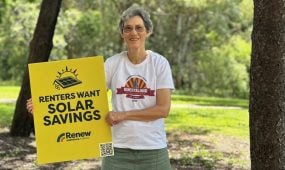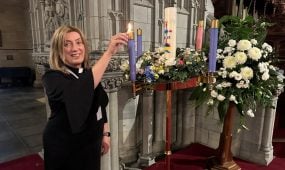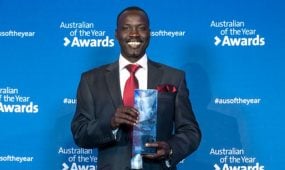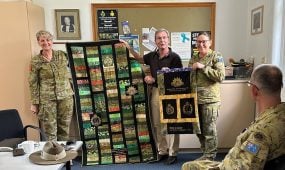Q&A with Anglicare Cultural Support Worker and Ngandawal Minjungbal man, Ben Travers
Spotlight Q&A
Meet Ben Travers and find out about his work with young people in out-of-home care, what Reconciliation means to him, the kindest gesture he has ever received from a generous stranger and what he would write on a billboard and why
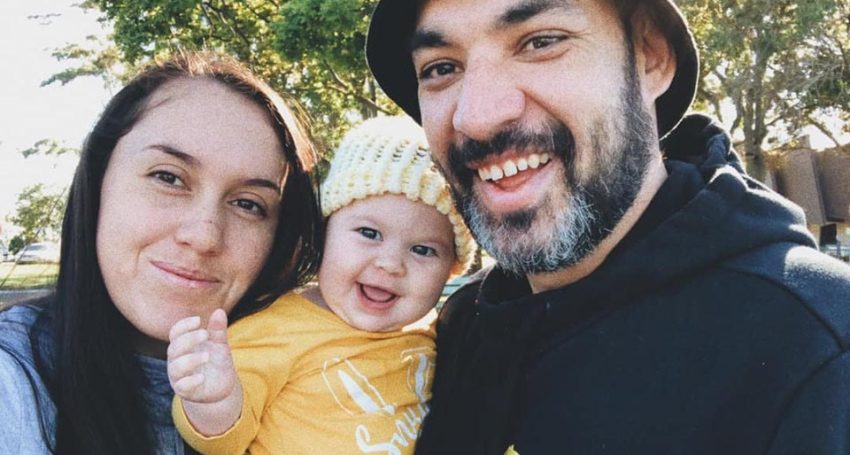
Ben Travers has worked for Anglicare Southern Queensland for the last 11 months in the role of Cultural Support Worker. He is a proud Ngandawal Minjungbal man from Bundjalung Country.
Where do you currently live and what is your Country?
I grew up in the Tweed area in which I call home on Bundjalung Country, and moved to the Gold Coast where I currently live on Yugambeh Country for easier access to work and employment.
How long have you been involved in the Anglican Church Southern Queensland and in what role?
I have been with Anglicare for about 11 months in the role of Cultural Support Worker, based in Underwood, where I work with the Children and Families Team providing cultural support for our young people in residential houses.
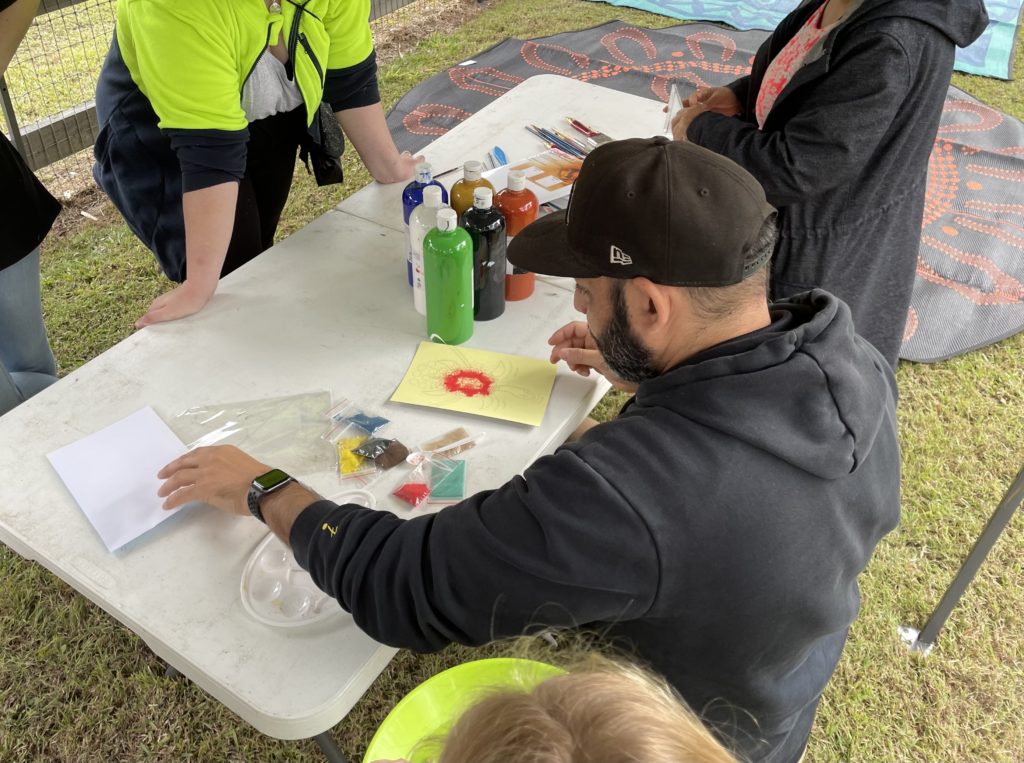
Anglicare SQ’s Ben Travers working at a NAIDOC Week event
What is your current ACSQ role and how does this role contribute to the Church’s mission?
My current role as Cultural Support Worker helps provide our young people with connection to culture and strengthening their identity within themselves. This contributes to the Church’s mission by celebrating our young people’s diversity and promoting inclusiveness of their cultures.
Why is it important for First Nations children in out-of-home care to be connected to their culture?
Our young people in out-of-home care have already lost so much and being connected to culture is a way for them to find some connection to their identity. It also helps in them finding their ‘sense of belonging’ and ‘sense of self’ in who they are as a person.

“Me on Bundjalung Country with my daughter” (Ben Travers)
What does Reconciliation mean to you?
To me Reconciliation means working towards equality, equity and justice. It means working towards being able to work and live side by side as equals.
Why is it important for Christians to engage in Reconciliation?
Given our history and the Church’s involvement in past atrocities with the removal of Aboriginal and Torres Strait Islander children from families, community and Country, I believe that it is very important for the Church to be actively working towards reconciling with First Nation communities to break down the walls and stigma that surrounds the Church for Aboriginal and Torres Strait Islander peoples so that healing can happen.
This year’s Diocesan theme is ‘Being Together: Nurturing Relationships’. What are some practical ways that we can communicate with each other when we are not in conflict and build trust so we have strong foundations when inevitable differences arise?
One of the most practical ways that we use is through yarning circles. We utilise yarning circles within our space to talk to each with respect and without judgment. It’s a space where people have a chance to talk and be heard.
What projects and activities are you currently working on?
We are currently in the process of developing ongoing programmes for our young people in the houses. The programmes are based on connecting the young people to culture through art, storytelling, yarning and connecting with the land by learning how to look after it.
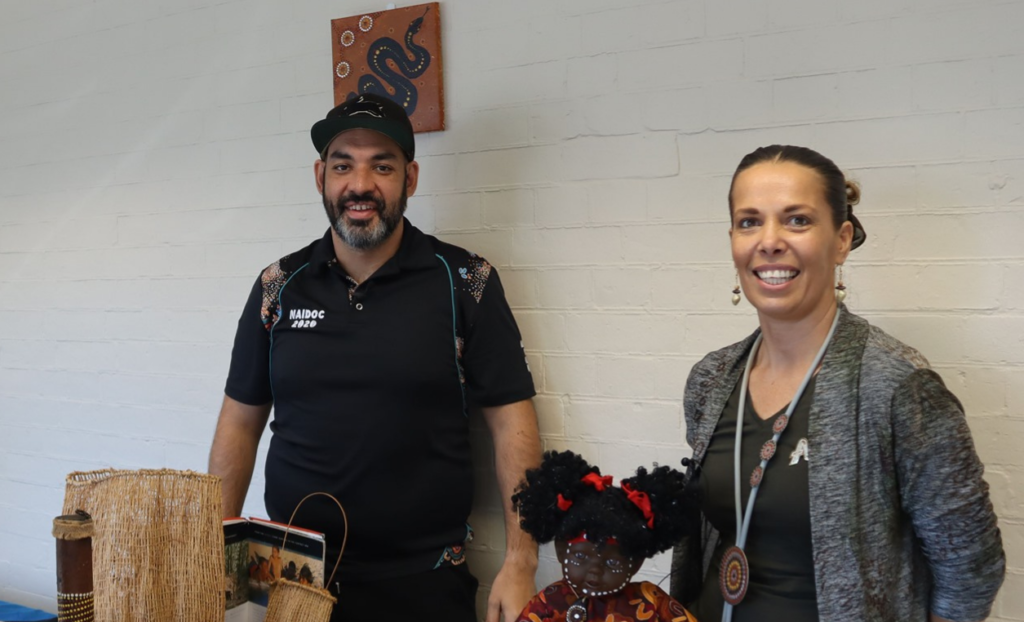
Anglicare SQ’s Ben Travers (Ngandawal Minjungbal man) and Lalania Tusa (Kuku Yalanji woman) play a critical role in ensuring that Aboriginal and Torres Strait Islander children who are in out-of-home care keep connected to their family, kin, community and culture
What has been one of the highlights of your time as a Cultural Support Worker so far?
My highlight occurred during our NAIDOC Week celebrations this year.
We organised a day with activities run by Deadly Choices and had a BBQ lunch and finished off with some Dreaming stories and a yarning circle to finish off the day.
It was during the yarning circle, as we asked everyone about a highlight of their day and something they were grateful for, that one of the young people who are separated from siblings in another house said that they were grateful for being able to spend time with their siblings for the day.
What have been the key challenges of your role so far and how have you worked through these?
Key challenges so far have been working out how to engage effectively with the young people. We have gotten around this by building our relationships and rapport with the young people and a lot of the young people are now engaging with us.
What is the kindest gesture you have ever received or witnessed?
The kindest gesture that I have received recently that I can remember was a few weeks ago after my phone had died. I was consequently unable to transfer money into my account and a generous stranger offered to pay for my groceries.
What is the best piece of advice you have ever received and who gave you this advice?
I can’t remember who gave me the advice, but it does stick in my head:
“The only person you need to make happy, and impress is yourself.”
What do you do in your free time to recharge and relax?
I go to the gym and play netball.
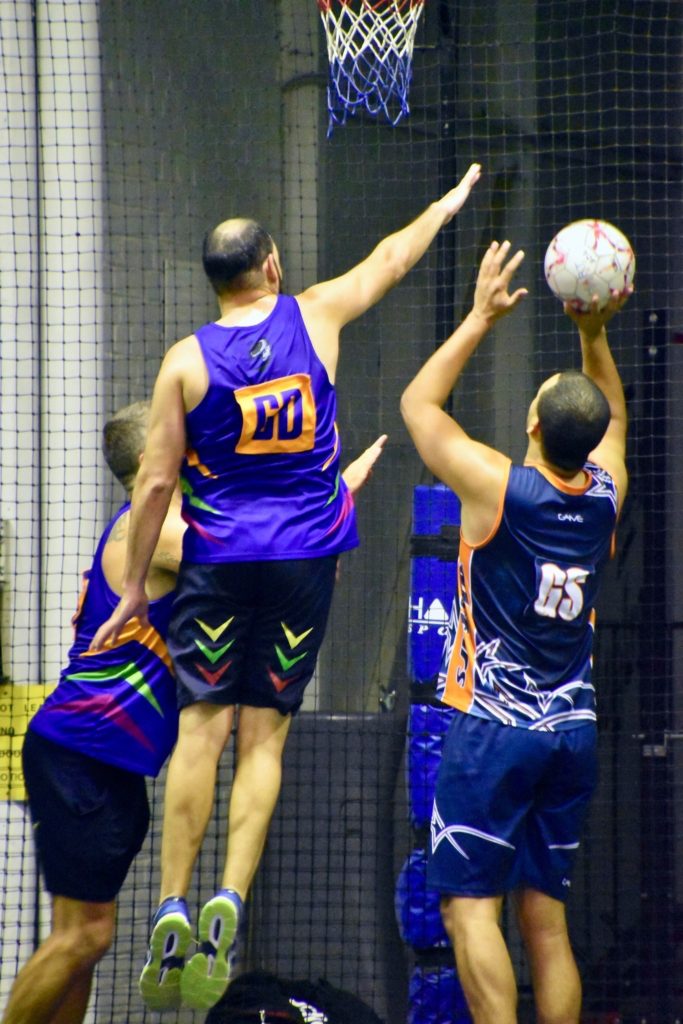
“Me playing netball in 2019: I’m the one jumping)” (Ben Travers)
If you could have a billboard with any text on it, what would it say and why?
“Love to Live, Live to Love.” This has been a little motto that I have lived by.
Where do you do your best thinking?
The shower. Just a good place to do some thinking.
What’s your best childhood memory?
Playing footy every weekend.

“A team football photo before the 2002 Grand Final: I’m in the back row, third from the left” (Ben Travers)
If you are having a bad day, what do you do to cheer yourself up?
I put my headphones in and go for a walk.
What makes you nostalgic and why?
Music. Certain songs just remind me of certain places and growing up. Whenever I hear ‘Khe Sanh’, or almost anything by Cold Chisel, I think of my junior league club at South Tweed as we would spend stay there after training for karaoke on Thursdays and it was a bit of a crowd favourite.
What day would you like to re-live and why?
The day I proposed to my partner. It was just an amazing day in an amazing place: Uluru, where I proposed at the Field of Light.

Ben Travers standing in the Valley of the Winds at Uluru-Kata Tjuta National Park in 2016

